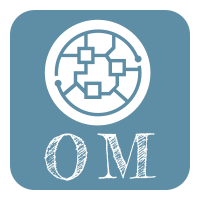News
New publications in EJOR
New publication in European Journal of Operational Research
We are pleased to announce a new high-ranking publication with the participation of Janis Neufeld in the European Journal of Operational Research! In our study entitled Minimizing Makespan and Total Tardiness for the Flowshop Group Scheduling Problem with Sequence Dependent Setup Times, we investigate the interactions between the two objectives of minimizing tardiness and makespan in a scheduling problem and part families.
Publication:
Xuan He, Quan-Ke Pan, Liang Gao, J.S. Neufeld, J.N.D. Gupta (2025) Minimising Makespan and Total Tardiness for the Flowshop Group Scheduling Problem with Sequence Dependent Setup Times, European Journal of Operational Research.
https://doi.org/10.1016/j.ejor.2025.02.00
Abstract:
The challenge of optimizing multiple objectives while considering job groups and partial due dates is prevalent in the flowshop group scheduling problem (FGSP). Despite its significance, the multi-objective FGSP with partial due dates (MFGSP) remains largely unaddressed in existing FGSP literature. In this paper, we bridge this gap by introducing a mixed integer linear programming model and an iterated greedy algorithm tailored for MFGSP with sequence-dependent group setup times, aimed at minimizing both makespan and total tardiness concurrently. Our proposed approach delves into the specific characteristics of times, acknowledging the inherent conflicts between objectives and the unique nature of each objective. We propose two novel local search operators: one inspired by the asymmetric traveling salesman problem and the other based on a domination criterion. These operators are seamlessly integrated into the iterated greedy algorithm framework, augmented with a cone-weighted scalar method as a fitness function and adaptive perturbation parameters. Extensive experimental evaluations demonstrate the efficacy and efficiency of our proposed algorithm, showcasing its capability to solve the MFGSP effectively. Through this research, we contribute a practical and versatile solution to a largely unexplored area in group scheduling optimization.
OM offers new module from SoSe 2025 on
From the summer semester 2025, we will be introducing the “Tools and Applications in Operations Management” module.
As part of the course, you will learn how to use relevant tools such as Gurobi, LaTex or Python and apply them in the context of Operations Management. This should optimally prepare you for quantitative work as part of a seminar paper and/or final thesis.
Merry christmas and Happy new year
 Merry Christmas and a Happy New Year from the team at the Chair of Operations Management
Merry Christmas and a Happy New Year from the team at the Chair of Operations Management
To celebrate the end of the year 2024 and the successful reorganization of the Chair of Operations Management, we locked ourselves in an escape room together in full team strength.
Thanks to teamwork, we were even able to escape the room faster than the specified time. Although we weren't able to optimize all the processes in the room, it was still a lot of fun.
We would like to wish you, the friends of Operations Management, a Merry Christmas and a Happy New Year.
Three new publications of the chair
Three new publications of the chair
We are pleased about three new publications that have recently appeared with the participation of our chair!
In collaboration with Tristan Becker and Udo Buscher (both TU Dresden), the article “The distributed flow store scheduling problem with inter-factory transportation” (https://doi.org/10.1016/j.ejor.2024.10.026) was published in the renowned European Journal of Operational Research (VHB Rating A). We investigate the influence of transportation in manufacturing networks and develop efficient solution methods for machine scheduling.
The Journal of Scheduling is the most important scientific journal in the field of scheduling (also VHB Rating A) and published the paper by Julius Hoffmann (KIT Karlsruhe), Janis Neufeld and Udo Buscher (TU Dresden) entitled “Minimizing the earliness-tardiness for the customer order scheduling problem in a dedicated machine environment” (https://doi.org/10.1007/s10951-024-00814-z). It deals with the practically relevant customer order scheduling problem, in which several orders are produced for a customer and punctual completion is to be ensured.
Both publications are freely available as open access articles.
In addition, together with the project partners of the VIPES project (TU Dresden, University of Vienna, ÖBB Produktion GmbH, dwh GmbH), the article “Zielkonflikte in der Umlaufplanung für Triebfahrzeuge” was published in the journal Eisenbahntechnische Rundschau, which appeals to a broad audience in practice and science. In the article, we discuss the various objectives of rail vehicle scheduling and identify relevant trade-offs between them.






